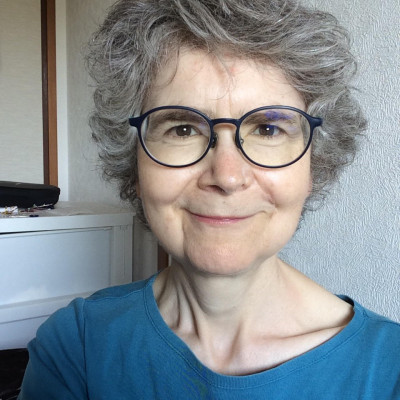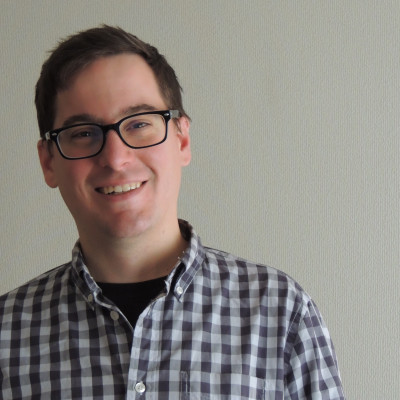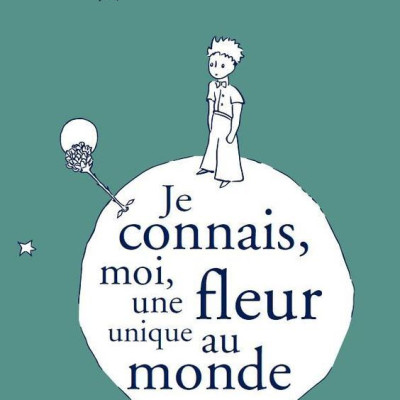Sessions / Location Name: 西 1 208
Physical Location
Location: 西 1 208
Fostering Student Independence Through A Community Revitalization PBL Class #3969
The presenters facilitate a Project-Based Learning (PBL) course centered on student discovery of local issues and community revitalization at a regional national university in Japan. From 2021 to 2023, students worked with a local experiential travel organization to promote its activities and the surrounding area to a domestic and international audience. The presenters will outline the first and second iterations of the course. In the first iteration, travel and direct engagement within the community were limited due to the COVID-19 pandemic, thus students focused on multilingual promotion using SNS platforms. Students of the second iteration actively researched the challenges faced by organizations and institutions in the area and worked with them and relevant government agencies to create two multilingual events and a promotion pamphlet. The presenters will describe the development of metacognitive skills in students (such as planning, problem-solving, and active listening) based on observation and student reflections. Then, the presenters will share examples of students gaining independence through their engagement with cooperating organizations and local government entities. They will conclude with future directions for the course and ways their findings can be integrated into similar community revitalization and international promotion projects.
Strategies for Developing Student Research Skills in an EMI Seminar #3995
Teachers of seminar classes in Japanese universities often encounter the challenge of students' difficulties with critical thinking and research skills. This presentation will outline a unit teaching research skills in an introductory EMI seminar. Previously, the focus was on explaining the present by looking at the past, but is evolving into a multifaceted, skills-based unit to better address student needs. This presentation gives a preliminary report on this new unit. Over the course of the seminar, teachers introduce three strategies of analysis: comparing sources, identifying stakeholders, and developing conceptual awareness. For each strategy, students prepare independently, then complete group activities to scaffold the methods which highlight their importance. Students then produce a final group project based on a recent news story of their choice, with the aim of utilizing the analytical skills developed through the project. Challenges were primarily in students’ difficulties in drawing connections to bigger, complex concepts. To improve effectiveness, we propose more time for in-depth exploration and integrating materials from other classes to promote holistic development of critical thinking. The presentation aims to offer a concrete approach to teaching critical thinking, analysis, and research skills.
Becoming bold users of theory #3965
This talk will focus on a 5-week module on "Theories of Communication" which aimed at stimulating students to talk about theories in English and to take a less reverent, more critical attitude to theories. The course was part of an MA in Communication Studies. In the discussion, it is hoped that participants will share their thoughts on questions such as the following: How do you encourage your students to look critically at the assumptions they have had until now, about language learning or other theories? What vocabulary is needed for students to be able to read and speak about theories of communication? Is historical perspective essential for them to understand the development of research in a historical context? How can we stimulate students to make their own theories boldly and evaluate them rigourously? Given that all this seems to connect with Arjun Appadurai's work on "The Right to Research", to what extent should one position research as activism? Are there other ways to articulate the relationship of these?
Tangible Benefits from Intangible Practices #3957
How can we increase tangible benefits for learners from a study unit on intangible cultural practices? Concluding a four-skill course for EFL students on contemporary UN-related topics, the presenter introduced students to three intangible cultural practices that are candidates for funding by UNESCO at its 18th session in Botswana in December 2023. The students who took the class were EFL students from two faculties: a College of Law faculty in Tokyo, and a Communication Studies faculty in Chiba. The three intangible practices were i) handmade glass production (in Europe), ii) jamu ‘wellness culture’ (Indonesia), and iii) transhumance (farming in Europe/Africa). The presenter will explain how students prepared before the class with self-produced materials, what they did in a series of activities, and the output they produced through a discussion of materials used and post-class student output.
The Effects of Role Conflict and Role Ambiguity on Eikaiwa Teachers #3939
Eikaiwa teachers experience workplace issues that can be understood as role conflict and role ambiguity. Role conflict refers to the dueling pressures between roles that can cause poor results or the incompleteness of one or both roles. Role ambiguity refers to the lack of clarity of a role, which may result in the role not being performed appropriately. Both role conflict and role ambiguity have been found to be predictors of symptoms of burnout. In this study, Eikaiwa teachers were interviewed to examine if role conflict and role ambiguity were present and how symptoms of burnout were connected to these experiences. The results showed that workplace issues, such as lesson preparation versus the amount of time they had during their working hours to plan the lessons, led to teachers experiencing role conflict. An example of role ambiguity included little to no training that participants received. This in turn left them with little understanding on how to perform their responsibilities in the school. Results also showed that these examples did lead to participants experiencing symptoms of burnout. Results of this study may be useful for teacher development in terms of initiating change and taking action to create a better working environment.
Using the Inclusive Practices in English Language Teaching Scale as a Reflective Tool #3931
Inclusive education is a human right, a means of realizing other human rights, and the result of an ongoing process to remove barriers to learning (Committee on the Rights of Persons with Disabilities, 2016). Language learning presents several unique barriers to students with disabilities (SWDs), especially those with sensory impairments and/or specific learning difficulties (Kormos, 2017). In addition, many English language teachers (ELTs) have reported feeling unprepared to teach SWDs (Hale & Ono, 2019; Smith, 2006; Sowell & Sugisaki, 2020), and inclusive practices are uncommon in pre-service ELT training (Smith, 2008; Stapleton & Shao, 2018). It is therefore imperative that in-service ELTs improve their ability to effectively include SWDs in their instruction.
Fortunately, reflective practice can help teachers gain insight into and improve the efficacy of inclusive practices (Graham et al., 2020; Higbee, 2009; Kuruvilla, 2017; Torres & Rao, 2019). This workshop will walk participants through using the Inclusive Practices in English Language Teaching Scale (IPELT) as a reflective tool to improve their awareness and implementation of inclusive practices. Participants will discuss basic concepts related to inclusive education before using the IPELT to reflect on their own teaching and create an action plan for more inclusive instruction.
ESP students’ needs and wants: critical thinking training with FiLCHeRS #3967
Although critical thinking is a complex skill that should be hard to put into practice while using a second language, attempts to test this ability for intermediate Japanese EFL learners (CEFR A2 to B1 level) have been successful (Hirai et al., 2020). However, for junior college students on mandatory ESP (English for Specific Purposes) classes whose English language ability and motivation to improve varies widely, the critical thinking educational curricula need to be compelling, concise and motivational. To this effect, the short text from Lett (1990) “A field guide to critical thinking” and its core acronym “FiLCHeRS” were used as the main basis of instruction. Then, the FiLCHeRS method was complimented with several short videos in English. The videos were used to highlight key concepts and uses of critical thinking, portraying it as a necessary life skill. Complementary direct instruction was also conducted in both English and Japanese. This presentation will report on the correlation between the students’ self-reported level of English, measurements of vowel minimal pairs’ listening skills, motivational make up, polarity of the students’ comments towards the English course, and two questionnaires (in increasing order of difficulty) to ascertain the students’ application of critical thinking concepts.
Development Sustained: Searching for Fresh Sustenance #3958
This presentation concerns a four-skills course taught at two Japanese universities in which EFL students research topics in discussion at the UN and role-play representing a UN member state. The course has been structured around CLIL-based SDG textbooks and has built upon them by a) introducing contemporary issues, b) allowing students to discuss and do short speeches in the classroom, and c) using Google Classroom as a hub through which students upload work before and after they do output-based activities in the classroom. Since 2020, it has evolved into a course with classroom and homework activities that conclude with speeches and written classroom reflections. Responses from over 80 students in July 2023 indicate that developments have been sustained, but the presenter seeks fresh sustenance to maximize future learner benefits from the course.








